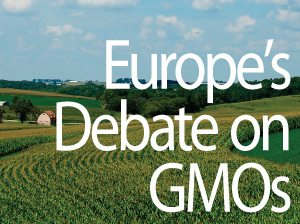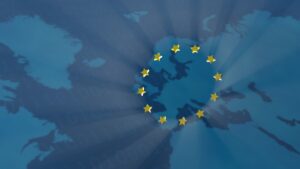Is the EU really starting to move on genetically modified crops?
The debate around the European Union’s policy on genetically modified organisms continues, with a flurry of activity and announcements over the past year. There are many different opinions on what direction the policy is taking, but most in the European seed industry agree positive steps have been taken.
Since the European Union’s current Commissioner for Consumer Protection and Public Health John Dalli took office in 2010, and was given full responsibility for all files related to GM technology, he seems to have followed a remarkably open and reliable policy line. Shortly after coming into office, he announced there were four priorities that he intended to tackle in regards to GMOs:
• The outstanding authorization of some GM products (i.e. the GM starch potato Amflora) for which there was no legal justification;
• The growing problem of trace levels of GMOs not yet authorized in the EU in feed (and food) imports;
• The expressed wish of member states to have more of a say in the cultivation of GM crops on their territories; and
• The question of presence of GMOs in conventional seed.
He announced that he and his service would address these four priorities in the order outlined above, one after the other. When Dalli cleared the Amflora potato for planting in time for the 2010 growing season, biotech supporters in the EU and worldwide applauded his decision as a signal of change, while anti-GM activists quickly branded him as a negative authority figure.
“While it is true that the Amflora potato was the first authorization for cultivation of a GM crop in more than a decade, and that this alone truly is a signal of importance, one should take a closer look at what this actually means in practice,” says Garlich von Essen, secretary general of the European Seed Association. “The Amflora potato is a very specific GM product—it is for industrial use only and not for food production. This means it is not marketed on the open EU market for plant varieties, but solely within a closed industrial circle. Therefore, this GM product is not generally available to Europe’s farmers, but only to a selected group of producers in a tightly controlled and limited system. So is it the crop that really makes the difference and demonstrates a new openness of Europe to GM cultivation? Hardly.”
Next on Dalli’s list is the issue of trace levels of GMOs in conventional grain imports from third party countries, mainly imports from Northern and Southern America. Since the EU’s livestock sector is historically dependent on feed imports, with most of these imports coming from countries with extensive GM cultivation (and functioning GM approval systems), the problem of unavoidable trace levels of GMOs not yet authorized in the EU becomes ever more pressing. In fact, the gap is constantly widening. Asynchronous approvals, as such, do not necessarily have to create trade barriers; but with the EU’s policy of zero tolerance for any unauthorized GMO entering the food and feed chain, liabilities have become unbearable and sufficient feed supply for Europe’s farmers is put into question.
“The EU agreed on what it calls a ‘technical solution’ for the issue—by defining a sampling and testing protocol, it establishes a tolerance level of 0.1 percent for the presence for a defined number of GM events,” says von Essen. “But is this really a solution? Again, hardly. The scope of the measure is very limited and does not cover all GM events authorized in third-party countries. And foremost, it only applies to grain imported for feed use and not for food production. Clearly, this differentiation is impractical given the simple fact that, for many commodity shipments, the decision of final use will often only be determined at a later stage in the distribution chain.”
It should also be noted that the tolerance level of 0.1 percent itself may prove insufficient with ever more GM production in those countries from which the EU sources its feed supplies, and with few alternatives in sight, adds von Essen. However, most industry and farmer organizations consider the measure to be a step in the right direction, and the Commission has announced it will consider proposing widening the scope to food if the first part on feed is formally approved by member states and European Parliament.
Since mid-July 2010, the Commission has been pushing its third GM priority: giving member states a greater say in GM crop production in their respective countries in an exchange for a less politicized, and thus much quicker, EU-level authorization for their use in food and feed. This proposal has met with resistance from almost all sides.
“The very member states that have asked for more freedom now question the legal base. The NGOs fear that, with giving countries more freedom, some might actually make use of it and cultivate GM crops;, farmers’ organizations want to assure a level playing field and have the same inputs available to their members all over Europe,” says von Essen. “The ongoing debate clearly shows that, in Europe, GMOs still mark a political battleground. Despite decades of scientific and practical experience, millions and millions of hectares planted, and increasing pressure on consumer prices and thus on agricultural productivity, not so much has actually changed.”
Von Essen believes many prefer to maintain the current situation of standstill and reciprocal blockage. “It seems at least doubtful that European Parliament and member states will follow the Commission and give up their anti-GM stance on EU level in order to assume more political responsibility in their individual countries,” he says.
Starts with Seed
Another issue has re-emerged in the course of this nationalization debate—seed is seen by many in Europe as being different than grain imports used for food and feed. “While the seed industry, as well as farmers, has underlined that tolerances, as in thresholds, for the presence of GMOs in conventional seed and in fields are even more necessary in a situation where the legal status of GM crops differs from country to country, or even from region to region, it seems that this logical argument doesn’t find the necessary majorities,” says von Essen. “While the European Parliament’s Committee for Agriculture did support a respective amendment, the Committee for Environment did not, and it is still unclear how the full Parliament will decide when it votes in the summer, let alone how member states will take it up in their discussions.”
As a result, von Essen says the Commissioner’s third and fourth priorities might very well be shot down in one, or even both, of the Union’s decision-making bodies. “And the Commission’s failure, or unwillingness, to address the practical implementation of its new policy approach of a more national decision-making on GM crop production, and to bring it in line with the principles of the EU’s internal market by including the necessary measures to establish tolerances for presence of GMOs in seed and fields, surely doesn’t help,” says von Essen.
So what is the verdict? Is the EU really starting to move on GM crops? It might still be a bit early to draw a conclusion. The mandate of the Commission runs until 2014, and its report on the evaluation of the existing GM policy still hasn’t been published. But von Essen feels it is quite likely it will contain the simple conclusion that things must change.
“Maybe it will then finally mark the start of a comprehensive debate and the elaboration of a consistent regulatory framework. In that case, it will be important to remind the Commission and policy makers in the European Parliament and member states that everything starts with the seed, and not with the labeling threshold for a pizza with GM tomato purée topping,” he says. “They got it wrong the first time, and have not been able to c
orrect the mistake for more than a decade. Europe’s plant breeders, seed producers and farmers can’t wait another decade. They need decisive action. And they need it now.” Julie McNabb and Garlich von Essen
Editor’s Note: Garlich von Essen has been the secretary general of the European Seed Association since 2004 and regularly lectures on EU lobbying and public affairs for a number of European organizations and institutes.













